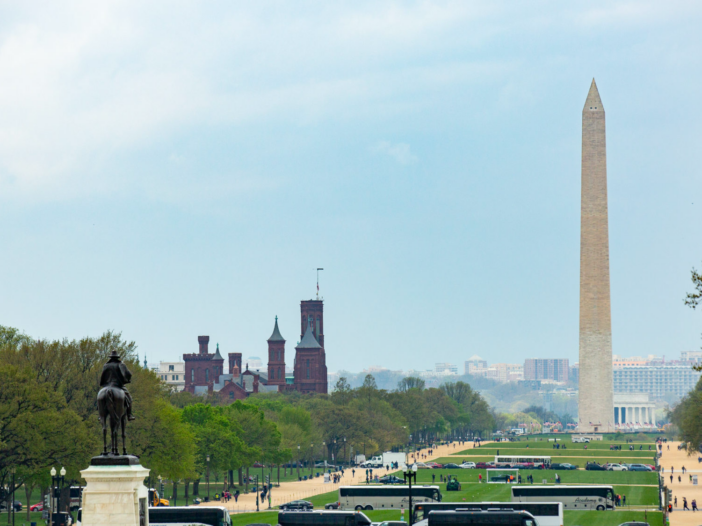Laetitia Haddad
October 28, 2021
https://thehoya.com/advocacy-coalition-launches-to-decriminalize-drugs-in-dc/
Washington, D.C.-based activist groups have launched the #DecrimPovertyDC campaign aimed at decriminalizing drug use.
The #DecrimPovertyDC campaign, made up of a coalition of local organizations, including D.C. Justice Lab, the Drug Policy Alliance (DPA) and Honoring Individual Power and Strength (HIPS), launched Oct. 21 and aims to decriminalize and destigmatize drug use and possession as well as urge the Council of the District of Columbia to allocate more resources toward support and rehabilitation for drug users. The group has launched a letter-writing campaign to the D.C. city council, encouraging it to take action to decriminalize and destigmatize drug use.
The goal of #DecrimPovertyDC is to destigmatize crimes that are often associated with poverty, according to Jeremiah-Anthony Righteous-Rogers, a spokesperson for HIPS, a group that organizes compassionate harm reduction services, advocacy and engagement events for communities impacted by sex work and drug use.
Black people are arrested for drug use and possession at a much higher rate than white people in the District. In 2017, 92% of people arrested for marijuana distribution and 75% of people arrested for public consumption were Black.
“The goals of the #DecrimPovertyDC campaign are multifaceted — we are a grassroots campaign focused on dismantling DC’s war on drugs, which has disproportionately impacted Black and underresourced communities the hardest,” Adesuyi wrote in an email to The Hoya. “We are in a state of compounded emergencies — between overdose, COVID-19, and housing insecurity.”
According to Patrice Sulton, executive director of D.C. Justice Lab, an organization that advocates for changes to the District’s criminal legal system through law and policy work, decriminalization gives power back to people.
“Any time you decriminalize anything, whether it’s drugs or sex work, you’re changing the breadth of authority that police officers, prosecutors and prisons have to inflict state violence on the community,” Sulton said in a phone interview with The Hoya. “Decriminalization is moving power away from state actors back to the community.”
Adesuyi said the launch of the #DecrimPovertyDC campaign calls upon D.C. Council to take actions that help, rather than punish, drug users.
“We are urging for the DC Council to urgently shift how we address drug use and misuse away from a criminal legal issue and actually center evidence-based, public health approaches,” Adesuyi wrote. “For us, this starts by decriminalizing personal use quantities for all drugs, addressing collateral consequences related to drug convictions, and radically investing in harm reduction and public health infrastructures.”
In 2017, D.C. faced one of its deadliest years for overdose-related fatalities. As a result, D.C. Council voted to legalize the distribution and use of fentanyl test strips. Unknown consumption of fentanyl often contributes to overdose fatalities; these test strips allow individuals to test substances for the synthetic opioid.
D.C. Justice Lab is assisting the #DecrimPovertyDC campaign by advocating for change regarding the decriminalization of drugs from the perspective of policy and the law.
“We are helping spread the word to our networks and other people who are either advocates like us or community members interested in our work and trying to help people shape and inform and push for smarter drug laws here,” Sulton said.
As a result of the efforts of DPA and other advocacy groups, the D.C. Council passed a bill in 2020 that decriminalized drug paraphernalia and permitted organizations to hand out harm reduction supplies, which make drug use safer.
There is support for additional decriminalization efforts in the District, according to Adesuyi, who hopes the #DecrimPovertyDC campaign could turn that support into real policy change.
“It’s no small deal that 83% of Washingtonians support removing criminal penalties for drug possession and investing in health services,” Adesuyi wrote. “This policy is not radical, it is common sense.”
A focus on decriminalization will create a path toward support and compassion, according to Adesuyi.
“It’s time that we stop punishing and stigmatizing people for using drugs, and instead meet people where they are by offering support and resources,” Adesuyi wrote.

